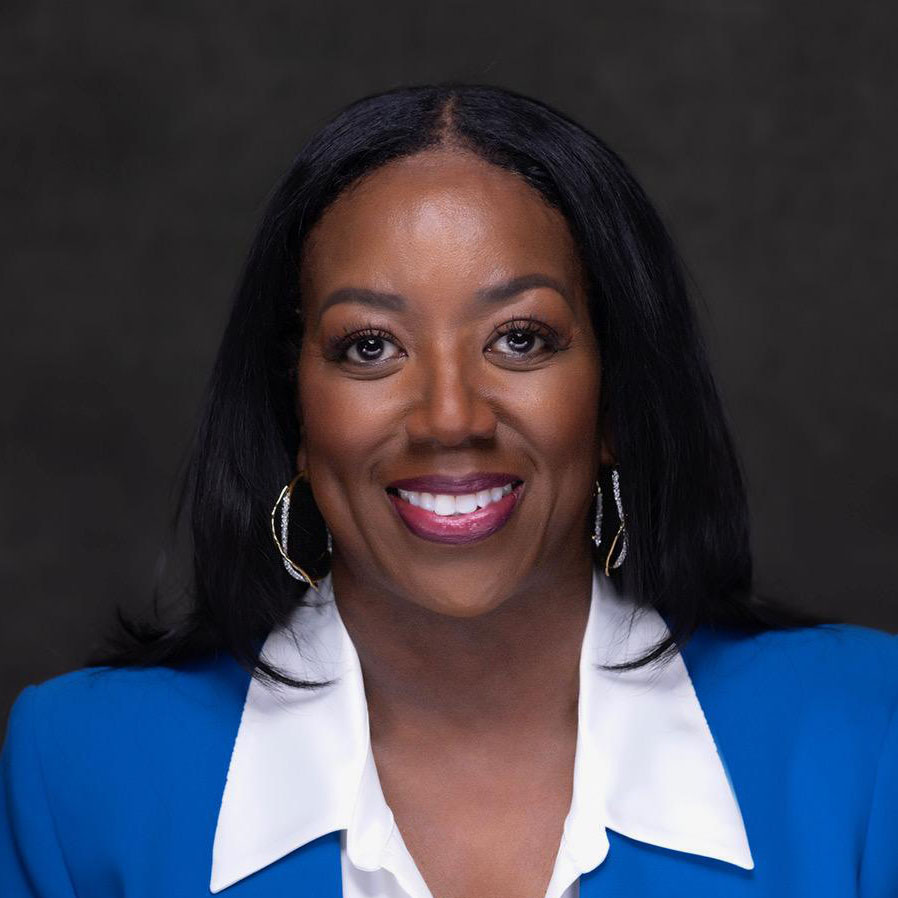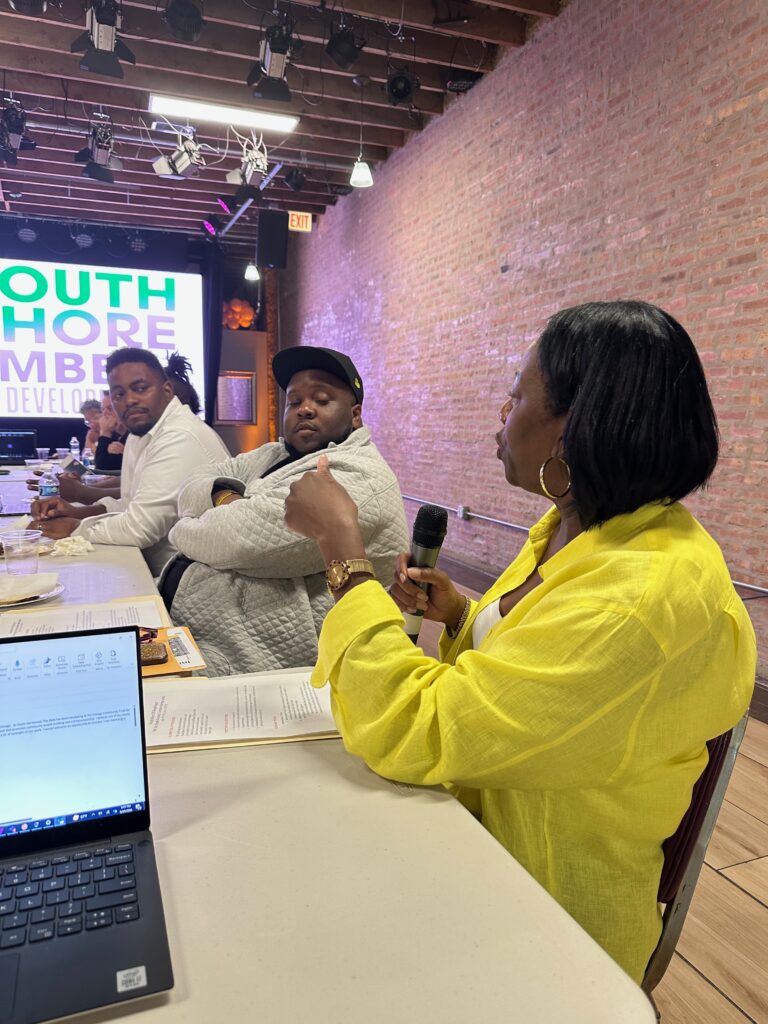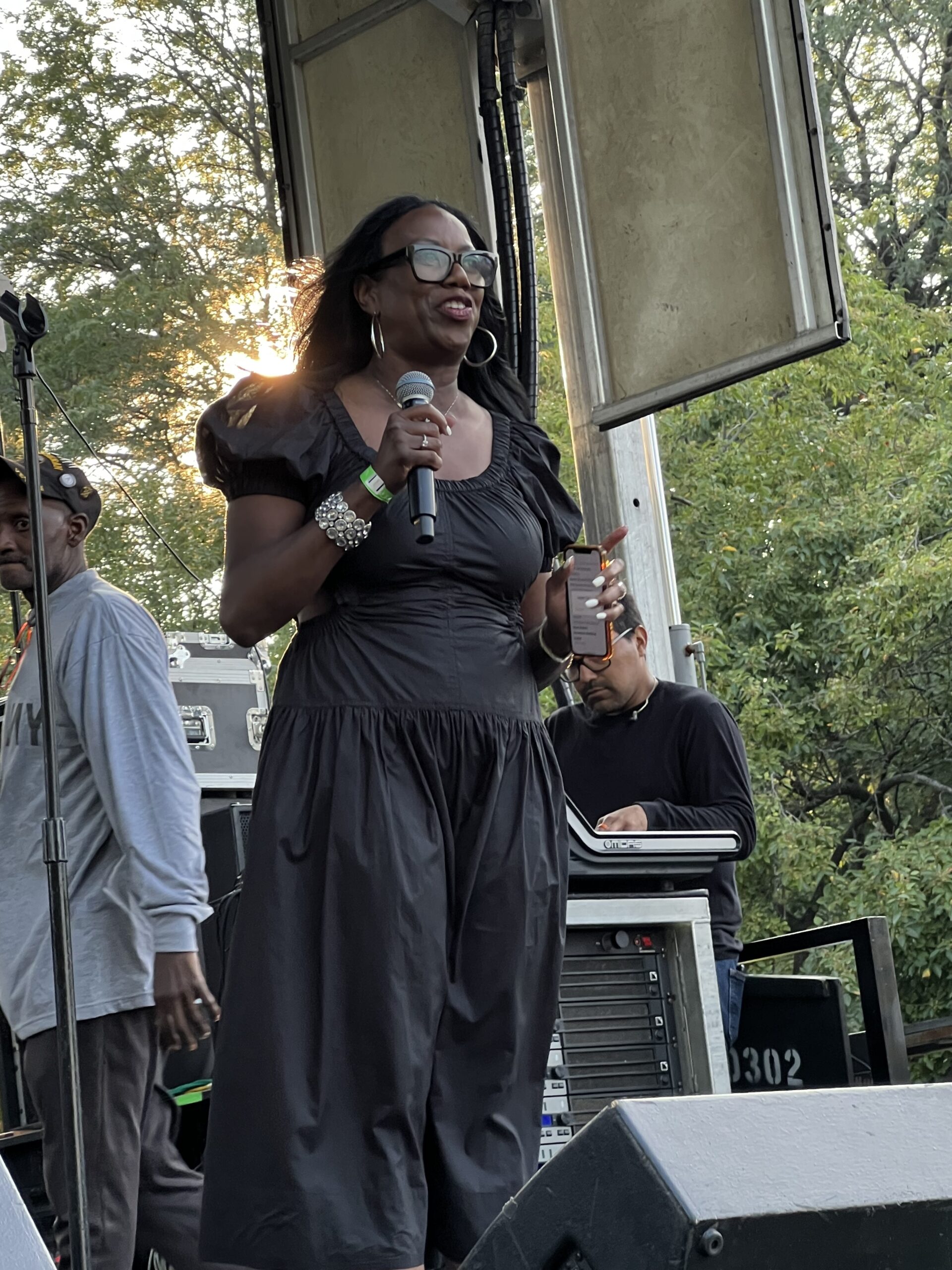Client Profile: Tonya Trice
March 21, 2023She’s hopeful – and tenacious – about bringing economic development to South Shore.



About a decade ago, Tonya Trice and her husband were talking about the future of their neighborhood. South Shore is coming back, he told her. He was sure of it. He was certain that the South Side neighborhood, home to a stunning stretch of lakefront and a large Black middle class, was on the cusp of a renaissance.
Tonya Trice didn’t disagree. But she isn’t one to rest on her laurels, waiting for change. So, she stepped in and got to work. And she hasn’t stopped.
“My husband kept telling me, ‘Things are changing. They’re making plans to revitalize the community.’ It wasn’t happening fast enough for me,” Trice says. “So I said, I’ll get involved. I think I can really make a difference. And I’m so glad that I did. It has been the most rewarding work of my life.”
“My husband kept telling me, ‘Things are changing. They’re making plans to revitalize the community.’ It wasn’t happening fast enough for me. So I said, I’ll get involved. I think I can really make a difference. And I’m so glad that I did. It has been the most rewarding work of my life.” – Tonya Trice, Executive Director, South Shore CDC & South Shore Chamber
Since 2014, Trice has served as executive director of both the South Shore Chamber of Commerce (Chamber) and the South Shore Chamber Community Development Corporation (CDC). These sister-agencies have a shared mission: strengthening South Shore’s commercial corridors and providing economic viability to the community. The Chamber is a membership-based organization that advocates for and supports local business owners, while the CDC focuses on broader issues of economic development, such as identifying and developing community assets and building wealth in South Shore.
Although Trice had no formal prior experience in community development, in a way, she’d been doing the work all along.
Building Toward a Mission
When Trice and her husband, James, met years ago, it was a match made in real estate heaven. She was a real estate broker. He was a general contractor and developer. She looked into his eyes and saw her entrepreneurial spirit reflected back. In time, the pair become partners both in business and in life. Together, they worked to create viable housing for South Side residents. They typically bought and renovated mixed-use properties with ground-floor storefronts and rental housing above. The Trices would recruit entrepreneurs for the storefronts, help them build out the spaces and give rent abatements until their businesses were up and running — not so different from the work she does today.
“The mission, the purpose is all the same: To rebuild communities that are marginalized, communities that people of color live in,” Trice says. “I’ve always loved having that ability to help people, to find solutions.”
Of course, solutions take time — and elbow grease, and the social intelligence necessary to build fruitful partnerships.
“When you’re doing community work, it’s not one person, not one organization, not one board making decisions. These are community-wide decisions that require input from a lot of different stakeholders,” Trice says. “We have to get a consensus. We have to identify resources through government agencies and philanthropies. Sometimes they’re available, and sometimes they’re not.”
Trice isn’t daunted. She describes herself as passionate, energetic and capable. Spend time with her, and it’ll quickly become apparent that those adjectives are spot on. It’s not uncommon for her to work 14- to 16-hour days. Her staff is small, her workload is hefty, and her sense of responsibility to the community is mammoth. (She’s also an entrepreneur; she and James own and operate Slab BBQ, a restaurant in South Shore where two of her three adult children also pitch in.)
When Trice initially took on the executive director role at the South Shore Chamber and South Shore CDC, the sister-agencies were struggling somewhat in the relationship department. So, she went on tour. She visited scores of community organizations; met with department heads at City Hall; and connected with elected officials, philanthropists and other potential partners.
One particularly meaningful relationship is with Community Desk Chicago. The South Shore CDC works alongside the Desk to rev up community revitalization. Through this partnership, the CDC participates in the Neighborhood Developers Initiative (NDI), a program that invests millions to help community organizations take on real estate projects at the local level. NDI aims to better position community groups to work with real estate developers and have a more equitable seat at the table — which requires cash, connections and knowledge.
“Community Desk Chicago is one of the few programs that I have been involved in that has provided not just mentoring and capacity-building for entrepreneurs and CDCs, but direct capital for projects,” Trice says. “The Desk has laid out a complete and comprehensive roadmap to true community development.
“And I have to quote Ja’Net Defell, The Desk’s director, when she said that people cannot expect you to play the game if you don’t know the rules. That has been what’s lacking in many of our African American communities — we did not know the rules to community development, but The Desk has opened doors and brought knowledge to help us make the change that we all want to see.”
Recent Investments, Long-Term Resiliency
While South Shore has not historically seen the influx of governmental and private investment that North Side and downtown communities enjoy, Trice says the tide is turning. She points to Chicago’s Neighborhood Opportunity Fund, which awards grants to commercial and cultural projects on the South, Southwest and West Sides, as well as Invest South/West, the $2.2 billion dollar initiative to reverse disinvestment in 10 South and West Side communities, including South Shore.
The investment may be recent, but the resiliency of South Shore residents has been enduring, constant. Trice recalls a recent example: A young woman opened a clothing boutique on 71st Street in 2020, about six months before the civil unrest following George Floyd’s murder. Later that year, her store was looted.
“They took everything. Every single thing. Every piece of clothing inventory she had, they took,” Trice says. “The woman called the South Shore Chamber of Commerce. She said, ‘I need some help. I want to try and rebuild.’”
Trice and her staff helped the woman board up her windows and access governmental grants.
“Now that woman is back up and operating at 100 percent. She rebuilt her store. That kind of gut, resilience, passion and just sheer determination and drive to be successful is really what makes the best entrepreneurs,” Trice says. “Because she did not let what happened stop her. She did not give up.”
Trice won’t give up, either.
“In five years,” she says, “I think we’re going to see a very different South Shore.”